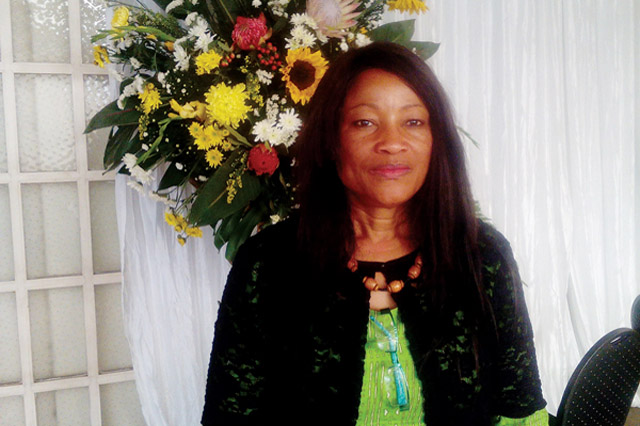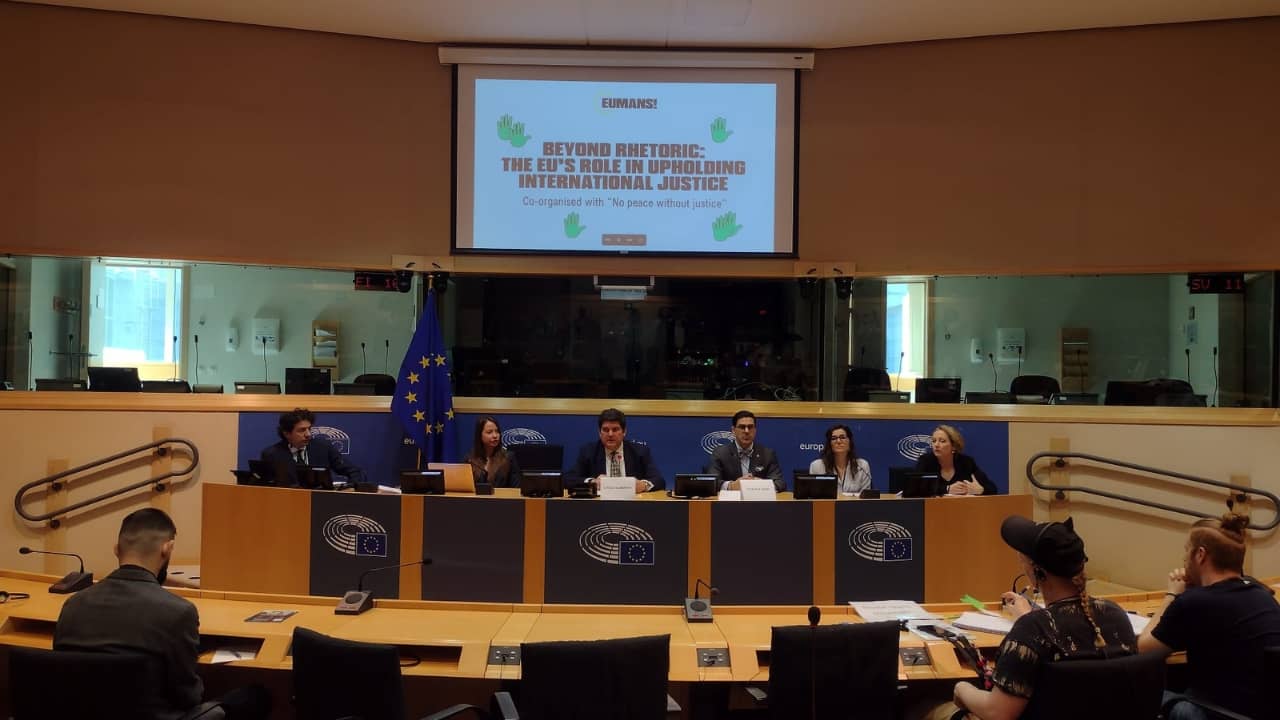
This following article was originally published in newsday September 24, 2017.
Women representation in the Parliament of Zimbabwe has improved to 35%, the highest since 1980. This was mainly achieved through the constitutional provision that 60 seats must be given to women through the proportional representation (PR) quota.
One of the female legislators that came through the proportional representation quota in the National Assembly is Jasmine Toffa (MDC). Although some of the female MPs, who came through the PR quota have been mum, Toffa, who is also the Welshman Ncube-MDC chief whip is one of those that quickly learnt the ropes and became vocal in Parliament sittings.
The following are excerpts from an interview between NewsDay senior parliamentary reporter, Veneranda Langa (ND) and Toffa (JT) on PR legislators and their duties.
ND: Who is Jasmine Toffa and how did you join politics?
JT: I am a mother of three boys, and that was the main reason I joined politics because everything was not going on well in the country and I became worried about the future of my children.
In 1999, I woke up one morning and decided that instead of watching Zimbabwe take a nosedive, I should offer my services and join politics.
So, I joined the MDC during its formation, but when the party disintegrated, I went with the MDC faction affiliated to Welshman Ncube.
I am the party provincial treasurer for Bulawayo province and in 2013, I became an MP representing Bulawayo, courtesy of the PR quota system.
ND: So, what exactly are the duties of a PR MP, since you do not have a specific constituency?
JT: Our duties, as PR MPs, are similar to those of other MPs with constituencies. The PR quota is there to provide a stepping stone for women representation in Parliament.
We represent women and the girl child, and our main duties are to raise issues affecting them such as maternal health, early child marriages and others.
As a PR MP representing Bulawayo metropolitan, I have opened my doors to anyone from Bulawayo to voice their concerns to me as an MP. I have helped women to acquire birth certificates for their children.
I have also been educating people on their rights to vote, and I have also dealt with vendors, who had so many grievances.
For example, female vendors were worried about lack of ablution facilities, yet they have to change pads during menstrual cycles.
I have also dealt with child-headed families, people living with disabilities and albinism, as well as youths.
ND: How do you then group people for meetings since you do not have a constituency?
JT: I print 100 to 200 business cards per week and issue them out to people so that they are able to communicate with me whenever they have issues.
I also have a social media WhatsApp and Facebook group, where I manage to pick up issues affecting the citizens I represent such as failure to get birth certificates.
ND: So far, how has been your four-year stint in Parliament?
JT: Very good. The only challenge was that, initially, when one gets into Parliament, you do not understand the Standing Rules and Procedures. As a new MP, I also had challenges that I did not have a constituency office and a driver to support me during Parliament trips.
But I was quick to learn Parliament procedures, and without other support systems I have managed to drive to different parts of the country to attend Parliamentary activities and workshops.
I volunteer to go to workshops, not necessarily for money, but to build my capacity as an MP.
ND: How have you survived heckling and sexist comments in the National Assembly?
JT: If you are a new MP, it can be very nerve-wrecking to contribute to debate because you can be heckled. As female MPs, we have now come to an understanding that we must not heckle each other because if you are heckled it will be difficult to regain your composure.
On sexual discrimination, I have felt that being the only female chief whip, (with Zanu PF and MDC-T having male chief whips) they at times forget to consult me when making decisions.
I even had to remind the Speaker of the National Assembly Jacob Mudenda that he has only mentioned the other two chief whips and forgot about me. I feel it is because I am a woman.
Yes, there are sexist comments in Parliament and people can make jokes and describe women’s weight and hair, and it is not nice.
ND: Seeing that you were fast in taking part in debate on different issues, what gave you the confidence?
JT: My political party colleague Priscilla Misihairabwi-Mushonga helped me by allowing me to become chief whip so that I gain exposure. I am also a member of the Standing Rules and Orders Committee and it has assisted me to quickly learn Parliament procedure.
I am also in the Sadc Parliamentary Forum, which has been a big eye opener, and I chair their social development and special programmes committee. I have spoken a lot in Parliament on the model law on eradicating early child marriages. I am also a member of Parliamentarians on Global Action, which is a group of MPs dealing with different developmental issues and at present I chair the Zimbabwe chapter. This gave me confidence to speak in Parliament.
ND: How can you describe the quality of debates in the House?
JT: I do not think that the quality of motions that are debated are that good because of deficiencies in Parliament staff that support MPs like researchers. The ratio is 78 MPs to one member of staff.
It causes MPs to fail to effectively contribute to motions and debate on Bills. During the Fifth Session of the Eighth Parliament, I will be introducing a motion on hospitals depriving women of birth certificates for non-payment of hospital bills.
ND: Do you see yourself coming back in 2018?
JT: It is difficult for me to say because of the current opposition coalition talks taking place. I will have to wait and see how the seats are allocated.
I, however, would like to come back because I was already getting into motion and was becoming very confident in my role as MP. If I come back for a second term I could hit the ground running.




